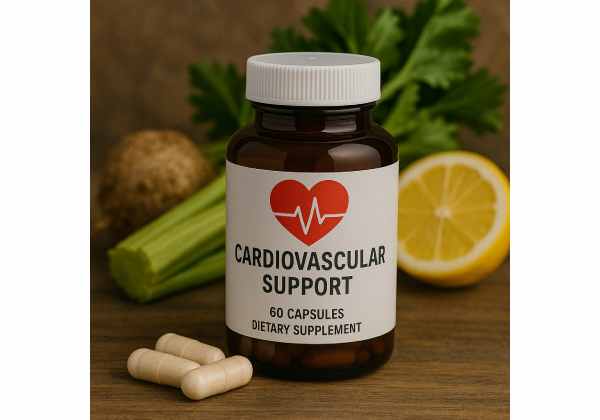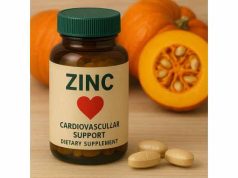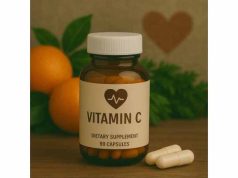
Glutathione has gained growing recognition for its potential to bolster cardiovascular function and reduce the risks tied to heart disease. As a powerful antioxidant naturally produced within the body, glutathione is integral to cellular protection, inflammation control, and lipid balance—all of which play critical roles in maintaining a robust heart and healthy blood vessels. In this in-depth guide, we’ll break down how Glutathione for Heart Health may help mitigate oxidative stress, enhance blood vessel flexibility, and support well-regulated cholesterol and blood pressure levels. Whether you seek preventive strategies or supplementary therapies, discover how optimizing glutathione status can pave the way for a more resilient cardiovascular system.
Table of Contents
- Thorough Overview of Glutathione
- Mechanisms Behind Glutathione’s Heart Support
- Clinical Research Demonstrating Cardioprotective Effects
- Guidelines for Dosage, Usage, and Safety
- Frequently Asked Questions
- References and Sources
Thorough Overview of Glutathione
Glutathione (GSH) is often called the body’s “master antioxidant,” and for good reason. This tripeptide—formed by the amino acids cysteine, glycine, and glutamate—serves as a cornerstone for detoxification and cellular maintenance. Although produced naturally in the liver, factors like stress, poor diet, aging, and environmental toxins can lower glutathione levels over time. For individuals concerned about cardiovascular disease, such depletion may compromise vital antioxidant defenses in blood vessels.
A Quick History and Discovery
- Identification: First isolated in the late 19th century, glutathione’s essential role in red blood cells and overall tissue health was later established during the early and mid-20th century.
- Medical Importance: Researchers eventually recognized that glutathione orchestrates multiple protective processes, from neutralizing free radicals to regulating nitric oxide (NO) signaling.
- Dietary and Supplementary Use: While your body synthesizes much of its own glutathione, modern diets and lifestyles spurred interest in supplements, intravenous therapies, and cofactor nutrients (such as N-acetylcysteine) to support glutathione status.
Fundamental Properties and Composition
- Tripeptide Structure: Glutathione consists of three amino acids—cysteine (which contains sulfur), glycine, and glutamate. This composition endows it with potent redox capabilities.
- Redox Cycling: GSH can donate electrons to neutralize reactive oxygen species (ROS), reverting to its oxidized form (GSSG). Under favorable conditions, it recycles back to GSH, perpetuating continuous antioxidant activity.
- Cellular Localization: Present in every cell of the body, glutathione levels are highest in organs like the liver, kidneys, and heart that face regular metabolic demands.
Key Heart-Related Roles
- Endothelial Defense: The inner lining of arteries relies on antioxidant safeguards, including glutathione, to manage oxidative challenges and maintain elasticity.
- Inflammation Regulation: Low-grade, chronic inflammation is a mainstay in many heart conditions, and glutathione helps moderate inflammatory pathways.
- Lipid Peroxidation Control: By quenching free radicals, glutathione can mitigate the oxidative modification of LDL particles—a precursor to arterial plaque development.
- Blood Pressure Influence: Adequate glutathione is correlated with healthy nitric oxide levels, important for vasodilation and blood vessel relaxation.
Food Sources and Natural Boosters
- Sulfur-Rich Foods: Vegetables like broccoli, kale, and Brussels sprouts can support glutathione synthesis by providing precursor compounds.
- Protein Intake: Lean proteins (e.g., fish, chicken, beans) supply amino acids needed to maintain glutathione reserves.
- Selenium and NAC: Selenium, found in Brazil nuts and some fish, along with N-acetylcysteine supplements, may help boost intracellular glutathione production.
Understanding these fundamentals establishes why glutathione is pivotal in the broader scheme of heart wellness. However, the real key to harnessing its cardiovascular benefits lies in how this antioxidant orchestrates the body’s defense against inflammation and oxidative stress. We’ll dive into those mechanistic details next.
Mechanisms Behind Glutathione’s Heart Support
Glutathione’s influence on heart health extends well beyond its well-known antioxidant capabilities. In fact, its protective effects arise from multiple pathways, each converging on optimal cardiac function and vascular integrity.
1. Neutralizing Free Radicals
Oxidative stress acts as a catalyst in many forms of cardiovascular disease. Excess reactive oxygen species (ROS) can damage proteins, DNA, and lipids in vessel walls, initiating atherosclerosis and weakening structural resilience:
- Peroxide Reduction: Glutathione peroxidase, an enzyme reliant on glutathione, converts peroxides into benign molecules, preventing oxidative harm.
- Shield Against LDL Oxidation: By reducing oxidative modifications to LDL particles, glutathione lessens the formation of foam cells, a vital step in plaque buildup.
2. Inflammation and Immune Modulation
Inflammation is no mere byproduct of cardiovascular disease—it frequently drives pathological changes in arteries and the heart:
- Downregulating Pro-Inflammatory Cytokines: Glutathione depletion correlates with higher levels of TNF-α, IL-6, and other inflammatory messengers. Conversely, ample glutathione helps keep these in check.
- Nrf2 Activation: Glutathione and related antioxidants can trigger the Nrf2 pathway, enhancing the expression of additional protective enzymes that limit inflammatory damage.
3. Endothelial and Vascular Benefits
The smooth endothelial layer lining blood vessels critically influences blood flow, clotting, and local blood pressure:
- Nitric Oxide Optimization: Nitric oxide (NO) is key for vasodilation, but excessive ROS can degrade NO or reduce its availability. Adequate glutathione status conserves NO function, promoting normal vessel relaxation.
- Preventing Endothelial Dysfunction: Elevated oxidative stress can lead to stiffened arteries, compromised vessel responsiveness, and thicker arterial walls. Glutathione counteracts these degenerative changes through direct antioxidant activity.
4. Cholesterol and Lipid Metabolism
While not typically highlighted for cholesterol management, glutathione indirectly shapes lipid dynamics:
- Regulating Enzymatic Activity: Certain enzymes that process fats and cholesterol rely on stable redox states. A deficiency in glutathione can tilt these enzymes toward dysfunction.
- Reducing Oxidized LDL: As previously mentioned, less LDL oxidation equates to fewer atherosclerotic lesions—a major advantage for heart health.
5. Blood Pressure Modulation
Hypertension stems from a combination of genetics, diet, stress, and vascular health:
- Toning Vascular Muscles: Glutathione’s role in fostering nitric oxide synergy can help keep smooth muscle cells within arteries more relaxed.
- Salt Sensitivity: Preliminary data hints that better antioxidant capacity may ease sodium-induced blood pressure spikes, but more research is needed to confirm precise mechanisms.
6. Insulin Sensitivity and Metabolic Factors
Cardiovascular risk escalates when insulin resistance and metabolic syndrome are present:
- Mitochondrial Health: Glutathione helps preserve mitochondria from oxidative wear, which can contribute to better insulin responses.
- Systemic Stress Reduction: When cells aren’t barraged by free radicals, metabolic processes run more smoothly, easing conditions like hyperglycemia, which strain the heart.
These multifaceted roles underscore the synergy between glutathione and heart health. While an ideal glutathione status fosters longevity and resilience, depleted levels can undermine protective processes—often intensifying cardiovascular risks. The next section explores studies and clinical evidence validating glutathione’s significance in helping to avert or mitigate cardiac challenges.
Clinical Research Demonstrating Cardioprotective Effects
Although glutathione’s integral function in cellular defense is well-documented, its influence on cardiovascular health is increasingly catching researchers’ attention. Over the last few decades, scientific efforts have revealed multiple ways in which boosting or preserving glutathione levels can yield tangible cardiovascular gains.
1. Observational Findings on Oxidative Stress and Heart Disease
- Low Glutathione, Higher Heart Risks: Epidemiological data generally indicates that individuals with reduced glutathione status experience higher rates of plaque deposition, arterial stiffness, and ischemic heart events.
- Inversely Correlated with Inflammatory Markers: Some observational studies correlate higher glutathione levels with lower CRP (C-reactive protein) and decreased interleukin levels—both intimately linked to heart complications.
2. Intervention Studies on Glutathione Supplementation
Although direct glutathione supplementation’s bioavailability can be challenging to measure, specific trials show:
- Cardiac Protection in At-Risk Populations: Patients with metabolic syndrome or type 2 diabetes may experience modest improvements in endothelial function and blood lipid profiles when using glutathione or supportive nutrients (e.g., NAC).
- Enhanced Recovery Post-Surgery: Some reports indicate faster rehabilitation and better outcomes after cardiac interventions like bypass surgery in patients with a robust antioxidant defense, including glutathione.
3. Nitric Oxide and Endothelial Function Trials
Nitric oxide is central to healthy blood pressure, and multiple studies highlight:
- Reduced Arterial Plaque: Combining L-arginine (a precursor to NO) and antioxidants, including glutathione, fosters fewer signs of atherosclerosis progression.
- Flow-Mediated Dilation (FMD) Improvement: Trials measuring FMD—an indicator of arterial flexibility—often find that antioxidants like glutathione amplify the vasodilatory response to NO.
4. Insights on Lipid Oxidation
Since oxidized LDL is a known culprit in atherogenesis:
- Lower Oxidized LDL Levels: Preliminary evidence shows that supplementation or diet-based interventions enhancing glutathione can decrease markers of oxidized LDL, thus dampening plaque onset.
- Possible Synergy with CoQ10: Some researchers propose that combining glutathione precursors with coenzyme Q10 might deliver stronger lipid peroxidation resistance.
5. Specialized Populations: Heart Failure and Other Conditions
- Heart Failure Patients: Low intracellular glutathione frequently correlates with worsened outcomes in congestive heart failure, suggesting a need for robust antioxidant therapy.
- Hypertensive Subjects: Pilot studies indicate mild but noticeable drops in blood pressure among those raising glutathione levels over a few weeks to months.
6. Integrative and Lifestyle-Based Reviews
Reviews focusing on dietary patterns, exercise, and stress management reveal that individuals who incorporate an antioxidant-rich approach often present superior heart metrics—fewer arrhythmias, lower blood pressure, and stable cholesterol profiles—hinting at a comprehensive role for nutrients like glutathione.
Although more large-scale, long-term randomized trials would further cement these findings, the cumulative evidence demonstrates a substantial link between robust glutathione and cardiovascular well-being. Next, we’ll examine how to use glutathione practically—spanning recommended dosages, supplement forms, and potential safety concerns—to maximize these protective effects.
Guidelines for Dosage, Usage, and Safety
Optimizing glutathione status for cardiovascular health requires a thoughtful blend of dietary strategies, potential supplementation, and lifestyle factors that help conserve and even increase the body’s GSH reserves. Below, we explore best practices to ensure safe, effective usage.
Selecting the Right Form of Glutathione
- Reduced Glutathione (GSH): Many oral supplements contain the reduced form, though the body’s digestive enzymes can break it down. Liposomal variants or sublingual forms may improve bioavailability.
- Setria® and Other Branded Forms: Specific patented forms of glutathione claim enhanced absorption. Independent tests suggest modest but notable improvements in GSH plasma concentrations.
- N-Acetylcysteine (NAC): A cost-effective approach is to boost glutathione indirectly by supplementing cysteine. NAC is a widely recognized precursor that can substantially raise intracellular GSH levels.
- Transdermal and IV Administration: Intravenous glutathione achieves high plasma levels rapidly. However, these methods are more invasive and typically administered under medical supervision.
Determining a Practical Dosage
- General Maintenance
- Doses of 250–500 mg per day of oral reduced glutathione may suffice for people aiming to support antioxidant status and heart protection.
- For NAC, amounts ranging from 600–1200 mg daily often amplify glutathione synthesis in otherwise healthy adults.
- Cardiovascular Support
- Studies on heart patients or those with elevated oxidative stress occasionally use up to 1000 mg/day of GSH or 1200–1800 mg/day of NAC.
- Stepwise increments, coupled with monitoring biomarkers like CRP or blood pressure, can help tailor an individualized dosage.
- Timing Considerations
- Glutathione or NAC can be taken any time. Splitting the total dose into morning and evening servings may sustain more consistent glutathione levels.
- Pairing antioxidants with meals that contain healthy fats and micronutrients might further optimize absorption.
Synergistic Nutrients and Lifestyle Approaches
- Co-Factors: Minerals like selenium and vitamins B6 and B12 support enzymatic reactions crucial to glutathione recycling.
- Dietary Emphasis: Embrace sulfur-rich veggies (broccoli, onions, garlic) and high-protein sources, enabling your body to produce enough cysteine.
- Physical Activity: Regular exercise supports better antioxidant responses, though overtraining without rest can deplete glutathione.
- Stress Control: Chronic emotional or oxidative stress can quickly diminish glutathione stores. Sleep hygiene, mindfulness, and balanced workloads are important.
Potential Side Effects and Precautions
- GI Disturbance: Large or abrupt glutathione or NAC doses occasionally cause mild gastrointestinal upset, including bloating or cramping. Reduce dosage or take with meals if issues arise.
- Allergies or Sensitivities: Rarely, individuals may experience rashes or breathing difficulties. Discontinue use and consult a healthcare provider if these symptoms appear.
- Medication Interactions: NAC, in particular, can modify how certain drugs—e.g., chemotherapy agents—are metabolized. Medical supervision is essential for high-dose regimens or complex conditions.
Who Should Consider Glutathione Supplementation?
- Chronic Heart Conditions: Those dealing with atherosclerosis, heart failure, or hypertension may benefit most from reinforced antioxidant defenses.
- Metabolic Syndrome and Diabetes: Supporting glutathione levels can ease vascular stress and improve insulin sensitivity.
- Senior Populations: Aging naturally decreases glutathione, underscoring the importance of nutritional or supplemental measures to uphold heart health.
- High Oxidative Stress: Smokers, individuals exposed to toxins, and those with autoimmune or inflammatory diseases often face faster GSH depletion and might consider targeted supplementation.
Ultimately, safe and consistent glutathione use can yield layered benefits for the cardiovascular system, especially when accompanied by a balanced lifestyle and active medical guidance. The FAQs below address common points of confusion, ensuring you can fine-tune your approach to this versatile antioxidant.
Frequently Asked Questions
Does Glutathione for Heart Health directly lower cholesterol?
It doesn’t typically act like statins, but it can reduce oxidative stress that leads to oxidized LDL. Less oxidized LDL means fewer plaques forming in arteries. Combined with a balanced diet, glutathione may support healthier cholesterol metabolism.
How does Glutathione for Cardiovascular Health benefit people with hypertension?
Glutathione helps improve nitric oxide activity, promoting blood vessel relaxation. It also mitigates oxidative damage that stiffens vessels, so maintaining sufficient glutathione can indirectly assist in managing elevated blood pressure.
Do Glutathione Benefits for Heart Health involve reduced inflammation?
Yes. Glutathione influences inflammatory markers by neutralizing free radicals. This antioxidant action lowers harmful signaling pathways and curbs cytokine production, easing overall inflammation—a known driver of heart disease.
Can Glutathione Helps Cardiovascular Function even if I eat well and exercise?
Certainly. While a nutrient-dense diet and consistent physical activity provide a strong foundation, supplemental glutathione or precursors like NAC can refine antioxidant capacity further, potentially enhancing heart-protective effects.
What dose of glutathione is best for supporting my heart?
Most individuals start with 250–500 mg a day of reduced glutathione or 600–1200 mg of NAC. Higher intakes—up to 1000 mg of GSH or 1800 mg of NAC—may be considered with guidance from a healthcare professional, especially for those facing significant oxidative challenges.
References and Sources
- Pizzorno, J. (2014). Glutathione! Integrative Medicine (Encinitas), 13(1), 8–12.
- Wu, G., Fang, Y. Z., Yang, S., Lupton, J. R., & Turner, N. D. (2004). Glutathione metabolism and its implications for health. Journal of Nutrition, 134(3), 489–492.
- Ji, L. L., et al. (2006). Exercise, oxidative stress, and antioxidants: An integrative approach. American Journal of Clinical Nutrition, 83(2), 598S–601S.
- Frasch, M. G., et al. (2010). Glutathione, oxidative stress, and cardiovascular disease. Current Hypertension Reports, 12(2), 137–144.
- Díaz-Vélez, C. R., et al. (1996). Enhanced glutathione-related antioxidant defenses in the livers of spontaneously hypertensive rats. American Journal of Hypertension, 9(9), 995–1002.
Disclaimer:
This article is meant for educational purposes only and should not replace professional medical advice. Always consult a licensed healthcare practitioner prior to making significant changes to your supplement or medication plans.
We encourage you to share this article on Facebook, X (formerly Twitter), or whatever platform suits you best. Help us spread the word on heart health and the value of glutathione, and don’t hesitate to follow us on social media for further insights and tips!






